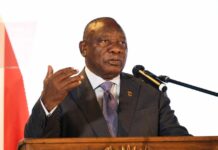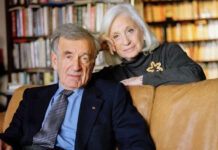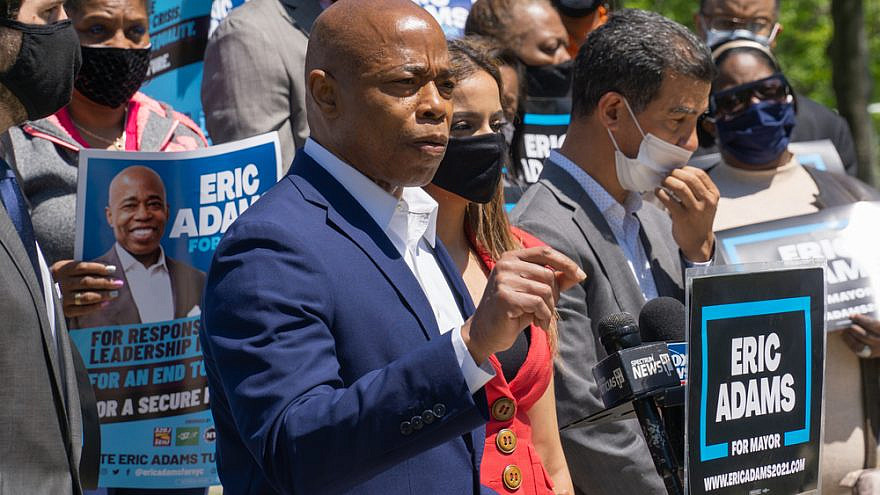Orthodox Jewish backers of New York City mayoral candidate Eric Adams, who holds a sizable lead in the city’s Democratic primary as results continue to roll in, cite his law-and-order message as being key to the race.
“I am the face of the new Democratic Party,” Adams stated on Thursday, adding that the race’s results so far show that “America is saying, ‘We want to have justice, and safety and end inequalities.’”
Without that clear mandate, as per the new ranked-choice voting system, the second round of counting is now underway.
For those who supported and voted for Adams, particularly in the Orthodox community, one of the key factors that put him over the top was his stance on public safety. In the last few years, members of the Orthodox community in Brooklyn, many of whom are identifiable by their traditional dress, have become victims of numerous anti-Semitic incidents ranging from harassment to outright assault.
“Without a doubt, the Flatbush Jewish community, our leadership, residents, yeshivah leaders, parents and business owners all agree that, for our community, the No. 1 issue in the election was public safety,” said Bennett. “Our community relies a great deal on the New York Police Department and its ability to keep us safe.”
Split in endorsements among Satmar community
Avi Lesches, a community resident and activist in the Crown Heights neighborhood of Brooklyn, N.Y., said “there is no one more suited than Eric to help bring this city back. As a former cop, he’ll earn the respect of both the NYPD and our communities. Eric is a stronger supporter and advocate of small businesses. It is under his leadership that NYC will see a brighter and more prosperous future for all New Yorkers.”
Yang also received from a segment of the Orthodox community, particularly the Chassidic community in Borough Park. Still, overall he only garnered 12 percent of the first round of voting, putting him in fourth place.
Those who backed him, included State Sen. Simcha Eichenstein and City Councilman Kalman Yeger, believed that he would likely leave the yeshivah educational system intact. (It has come under sharp criticism from some corners for not providing enough secular education, particularly in haredi and Chassidic schools.)
One interesting dynamic in the election—beyond just the number of candidates—was the split several weeks ago in the endorsements coming from the Satmar Chassidim, who are concentrated in the Williamsburg section of Brooklyn.
As previously reported, followers of Satmar Rabbi Aron Teitelbaum, who is based in the Village of Kiryas Joel in Upstate New York, were urged to support Adams. However, those following Satmar Rabbi Zalman Teitelbaum in Williamsburg had backed Yang.
“From the initial results, it looks like the Chassidim in Williamsburg overwhelmingly vot[ed] for Yang as their first choice,” said Samuel Heilman, professor emeritus of sociology and the Harold Proshansky Chair in Jewish Studies at Queens College and the Graduate Center City University of New York.
What remains to be seen is the number of absentee ballots coupled with the impact of the second round of ranked-choice voting. Some political commentators who watch New York politics have suggested that second-place candidate Maya Wiley, a far-left candidate who has the support of Rep. Alexandria Ocasio Cortez (D-N.Y.), could end up moving into the lead if enough people had her as their second choice.
Whoever the Democratic candidate is, he or she will face off against Curtis Silwa, founder of the Guardian Angels, who won the Republican primary earlier this week.


























